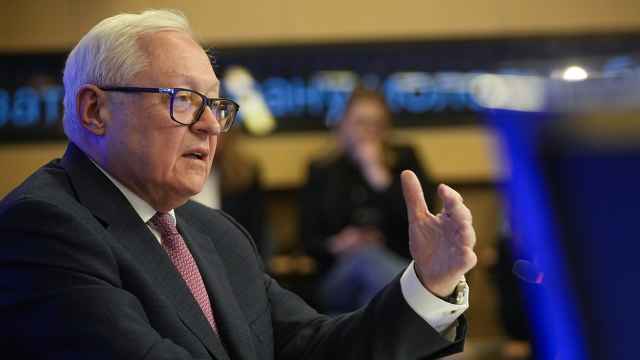Having served as the chief telecommunications policy expert in Tatarstan and now heading Russia’s Communications and Press Ministry, Nikolai Nikiforov has covered a lot of ground in his 29 years.
That isn’t his time in the industry: He turns 30 later this month. Nikiforov is the youngest minister in the Cabinet created by Prime Minister Dmitry Medvedev in mid-May, and by all accounts he is the youngest-ever appointee to a post-Soviet Cabinet.
Though significantly younger than his predecessor, 46-year-old Igor Shchyogolev, Nikiforov has already spent more time in the Internet industry and telecom regulation than Shchyogolev had by the end of his term.
Nikiforov begins his federal role after two years as information and communications minister for Tatarstan, one of the most economically developed regions of the country.
In a Vedomosti interview published in May, Nikiforov said 62 percent of Tatarstan households have a computer with Internet access, and that figure is 78 percent in the capital, Kazan. This compares with a nationwide figure of 36 percent.
Born in Kazan, Nikiforov became deputy director of a local news and advertising website company called Kazan Portal before he was 20. He graduated from Kazan State University with an economics degree in 2004, and in 2004-05 he worked as deputy general director for the company Modern Internet Technologies.
Also in 2005, he became an adviser to Tatarstan’s prime minister. Nikiforov was the general director of Tatarstan’s Information Technology Center from 2006 to April 2010, when he was named the republic’s information minister, a post that also made him a deputy prime minister of Tatarstan at age 27.
Nikiforov’s appointment in May to the top government telecoms post came as a surprise, after months of speculation that the job would go to former MegaFon general director Sergei Soldatenkov or former Microsoft chief and current VTB vice president Olga Dergunova.
“Regional operators are waiting for the [ministry] to establish fair competition,” said a senior manager with one of Russia’s mobile operators, who wasn’t authorized to speak about government agencies.
When asked which areas of IT and telecom are most in need of a policy revamp, Anatoly Karachinsky, the founder and president of IT giant IBS Group, replied “all of them.”
“There was no [IT or telecom] strategy in the country, and nothing was done” under previous ministers, Karachinsky told The Moscow Times.
In his minister role, Nikiforov has already set a 2014 deadline for number portability, though the policy of forcing mobile operators to let customers keep their cellular telephone numbers when changing operators had been proposed by Medvedev in April.
Nikiforov is uniquely qualified to oversee the task, which probably will be the first major policy change on his watch: According to Vedomosti, he oversaw a pilot project for number portability of fixed lines in Tatarstan.
A Message from The Moscow Times:
Dear readers,
We are facing unprecedented challenges. Russia's Prosecutor General's Office has designated The Moscow Times as an "undesirable" organization, criminalizing our work and putting our staff at risk of prosecution. This follows our earlier unjust labeling as a "foreign agent."
These actions are direct attempts to silence independent journalism in Russia. The authorities claim our work "discredits the decisions of the Russian leadership." We see things differently: we strive to provide accurate, unbiased reporting on Russia.
We, the journalists of The Moscow Times, refuse to be silenced. But to continue our work, we need your help.
Your support, no matter how small, makes a world of difference. If you can, please support us monthly starting from just $2. It's quick to set up, and every contribution makes a significant impact.
By supporting The Moscow Times, you're defending open, independent journalism in the face of repression. Thank you for standing with us.
Remind me later.





